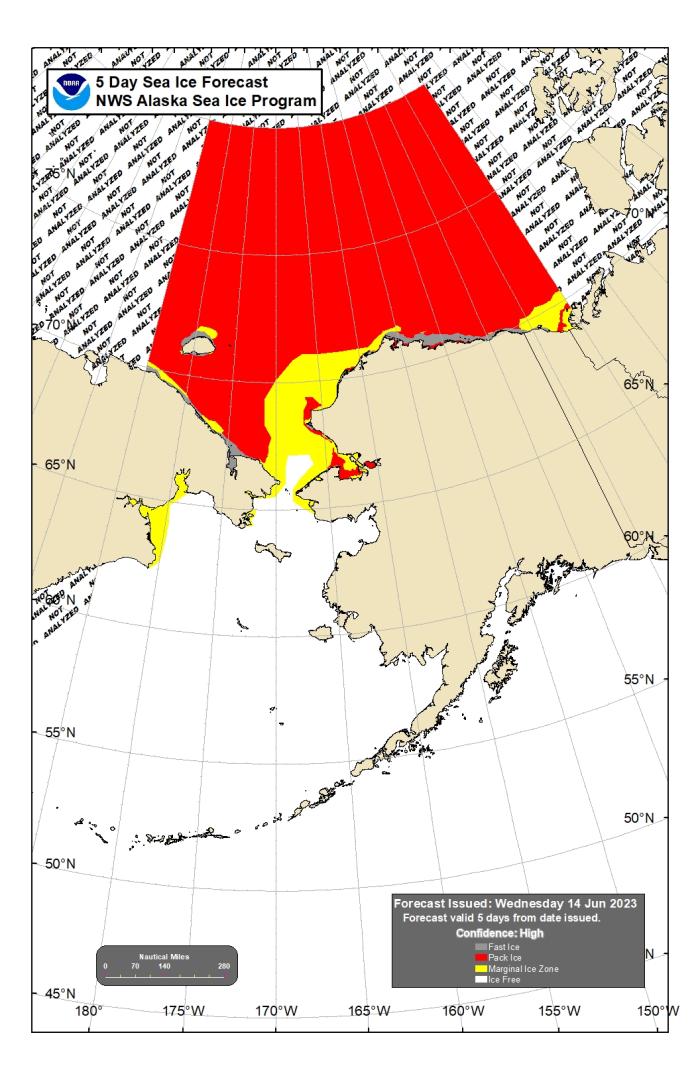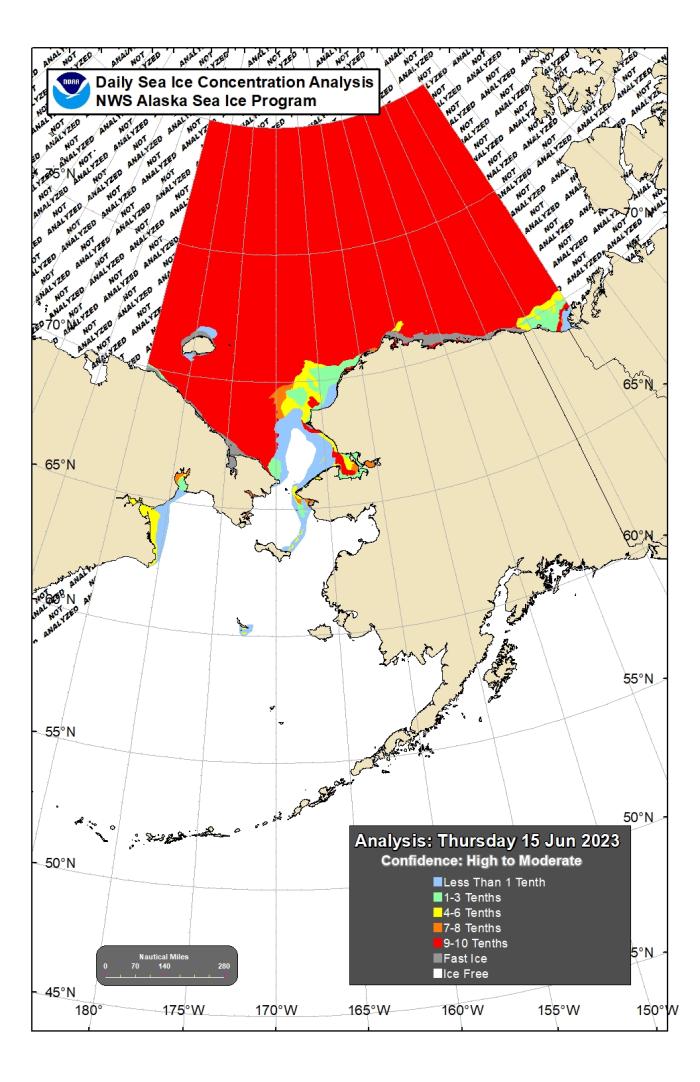Assessment of Current Ice Conditions Relevant to Distribution and Access of Walrus
Click the name of each community below to view more frequently updated and detailed information from the National Weather Service.
Synopsis: High pressure over the High Arctic, until a low pressure develops Sunday. A weak low moves near the NW coast of Alaska on Friday. High pressure builds across the Bering Sea through the week and remains through Tuesday.
Near St. Lawrence Island
The coast of St. Lawrence Island is approaching ice free as a big floe that was previous shorefast ice, breaks away off the coast near Tomname Lagoon. Open pack ice is quickly melting from Lietnik and extends outward 80 miles (132 km). Close pack ice remains within Niyrakpak Lagoon.
Nome
Nome and Norton Sound are ice-free. An area of close pack ice is 85 miles (137 km) west of Nome.
Nome port entrance webcam (via AOOS webpage): https://bering-sea.portal.aoos.org/?ls=79875242-e362-65cb-914e-fed20ff9…
Brevig Mission/Port Clarence Area
The previously shorefast ice, now close pack ice, in the Port Clarence and Brevig Mission area extends 20 miles (32 km) southwest of Brevig Mission. Two areas of very open pack ice are within this area, one from Teller and eastward, the second 8 miles (13 km) south of Brevig Mission.
Wales to Shishmaref
Off the coast from Wales to Shishmaref is approaching ice-free waters. Open pack ice is flowing around the coastline of Wales. An area of open pack ice is 30 miles (50 km) north of Shishmaref. There is open pack ice within protected bays and lagoons. An area of close pack ice is 30 (50km) southeast of Wales.
Diomede
Diomede is within ice-free waters. An area of open pack ice is 47 miles (75km) southeast of Diomede.
Forecast Discussion
Ice Forecast
For St. Lawrence Island, winds shift from the south on Saturday. Expect southerly winds during the weekend to melt all remaining ice near the island.
For Brevig Mission/Port Clarence, southerly winds this weekend will continue to compact ice along the south-facing coastline near Brevig Mission. The close pack ice will continue to significantly melt.
For Wales to Shishmaref, ice will continue to drift around the coast of Wales. Ice within protected areas will significantly melt.
Wind Synopsis
North to northwest winds for the entire area around 10 to 20 kt (12–23 mph) through Friday afternoon, then weakening overnight into Sunday. Winds will then shift south around St. Lawrence Island by mid-day Saturday at 10 to 16 kt (12–18 mph) with gusts to 20 kt (24 mph). These winds will get to Nome and Diomede during the afternoon on Saturday. There will be a lag time for Shishmaref as winds strengthen from the south Sunday morning. Winds will remain nearly the same strength through the day on Sunday, but increase in the Bering Strait to 15 to 25 kt (17–29 mph) with gusts to 30 kt (35 mph) before weakening Monday. Winds will remain southerly to southwesterly through Wednesday at around 5 to 10 kt (6–12 mph) with a chance for increasing wind speeds by Thursday.
Temperature Trend
Temperatures won’t be shifting too much as highs remain in the upper 30s to low 40s over St. Lawrence Island through the Bering Strait and into the Chukchi Sea. The warmest temperatures will be from Brevig Mission east through Nome as highs get into the mid to upper 40s through next week. Highs over the Norton sound will likely get near 50 at times through next week. Low temperatures will also remain similar with lows around freezing each night from St. Lawrence Island to Diomede and Shishmaref. Warmest low temperatures will be from Brevig Mission to the Norton Sound as they drop to the upper 30s to near 40 degrees.
Daily Weather, Wind, and Temperature Updates
The National Weather Service provides twice-daily, text only updates on the weather, wind, and temperature conditions in specific geographical zones. An interactive weather map for access to other Alaskan zones can be found here: http://weather.gov/anchorage/ice
Higher resolution satellite images and wind maps (wind updated daily) can be viewed here: http://www.weather.gov/afg/SIWO_overview
The Alaska Ocean Observing System shares a variety of weather and sea ice related resources in their Bering Sea Portal at https://bering-sea.portal.aoos.org/.
Marine forecast for the West Coast and Arctic Coast
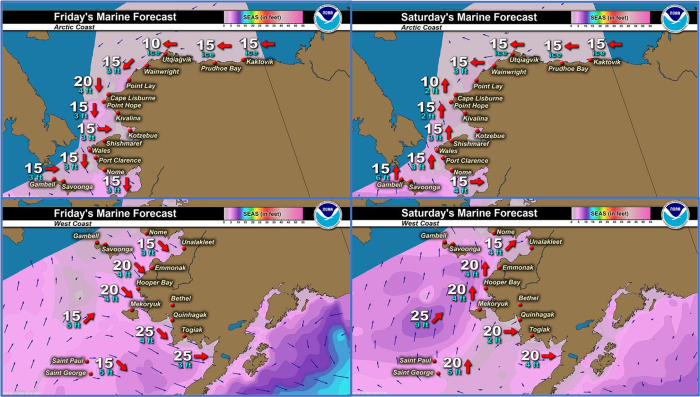
Remote Sensing Images
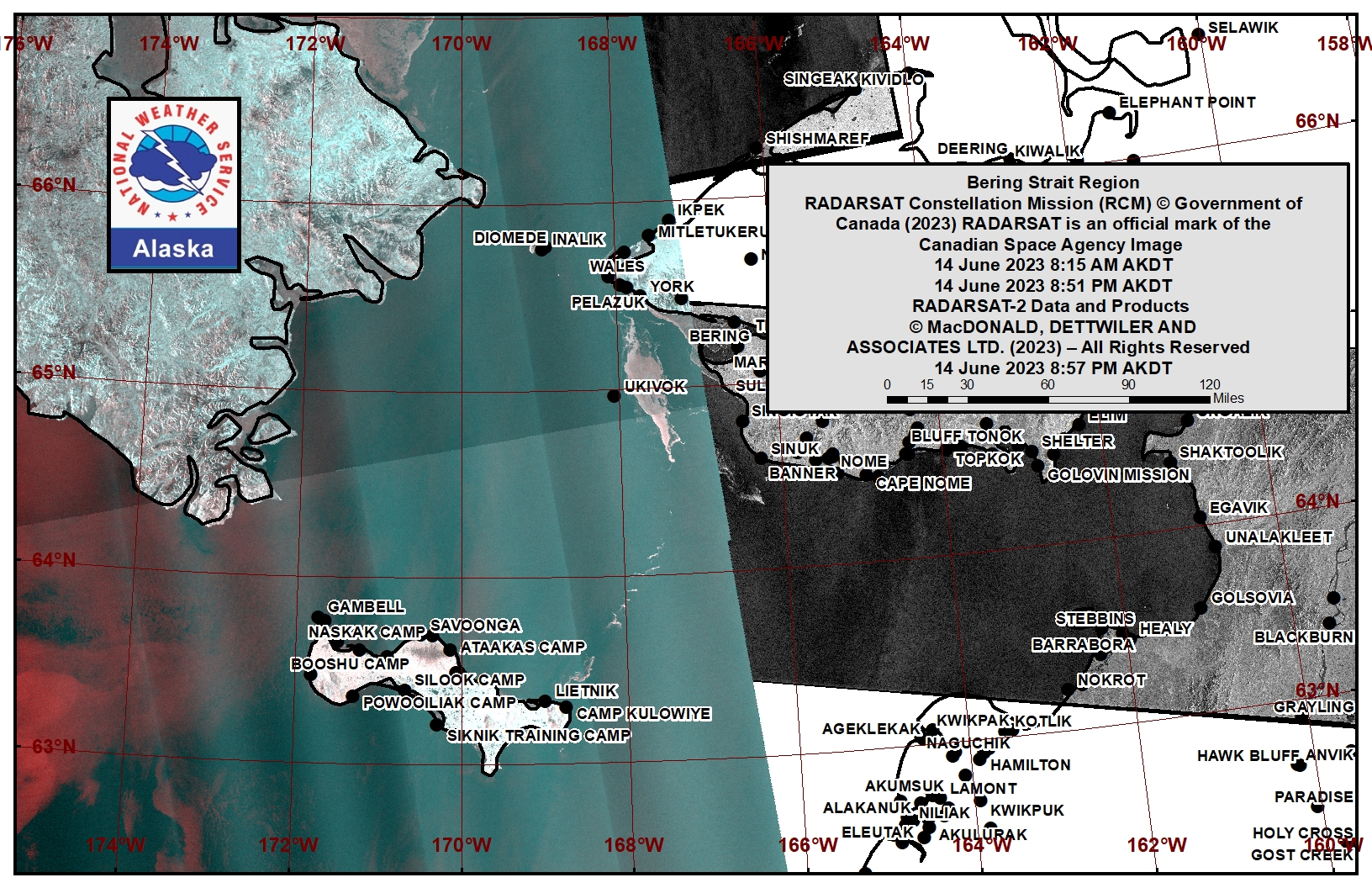
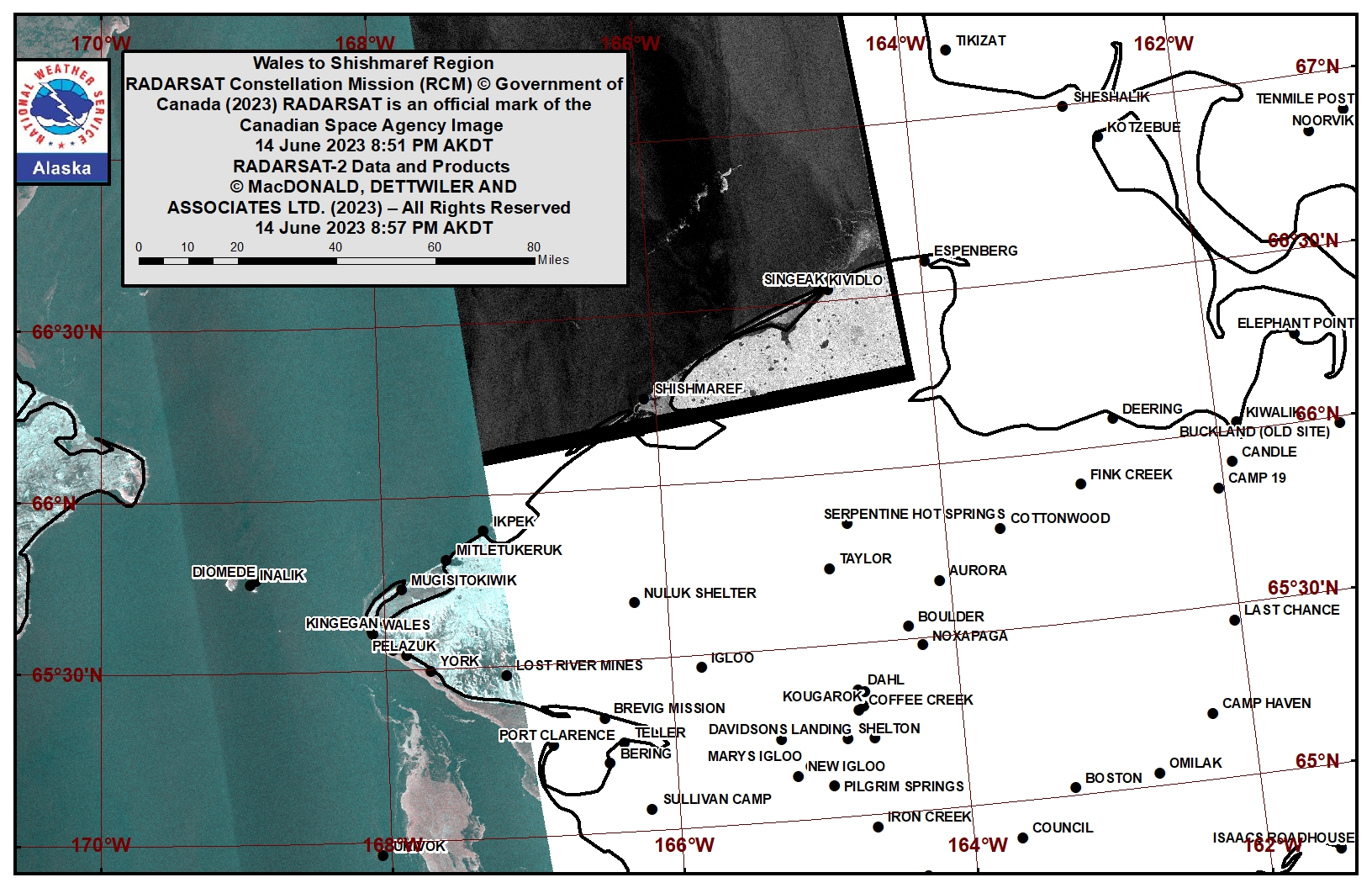
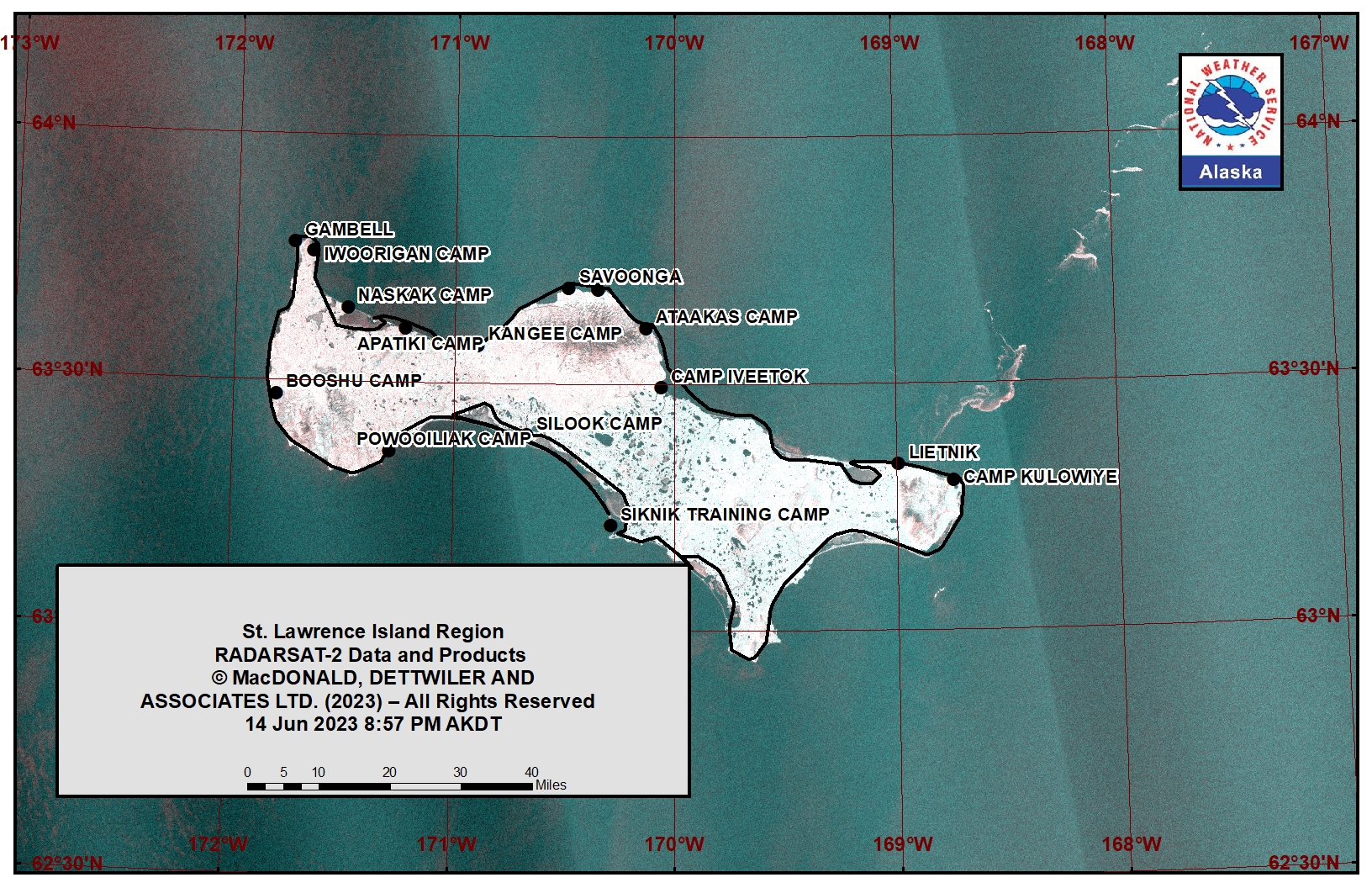
Observations and Comments
Observations of Sea Ice Development
Observations from Diomede
Monday, 12 June 2023 – Odge Ahkinga
Travel to the sea ice near Wales. Few bearded seals only one bull walrus on the ice. We were visited by one killer whale while hunting a bearded seal.
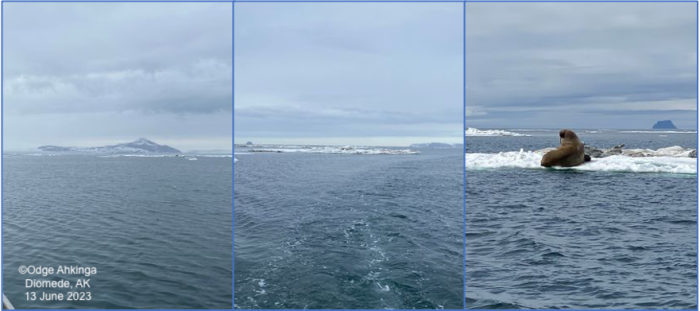
Saturday, 17 June 2023 – Odge Ahkinga
Sea ice near Diomede islands yesterday.
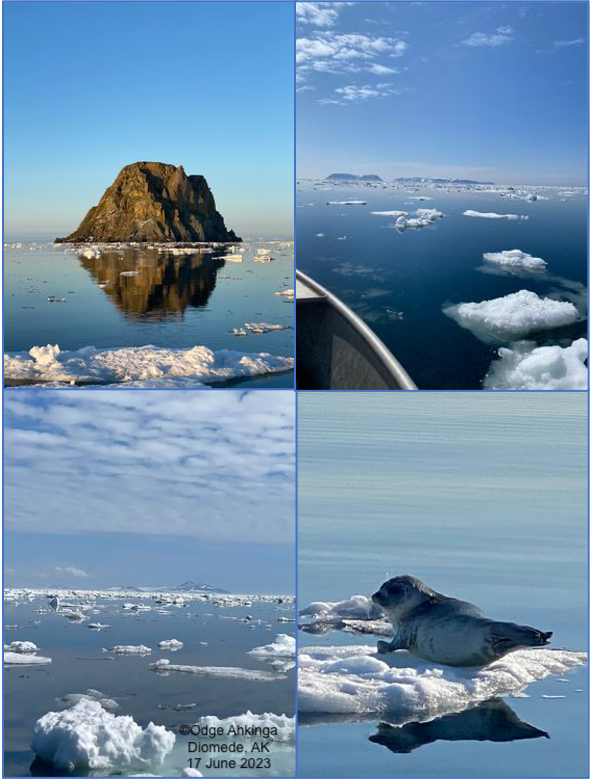
Observations from Shishmaref
Friday, 16 June 2023 – Curtis Nayokpuk
Recent storm (high winds, high water, and waves) ended spring hunting season for most crews with shore ice now gone. Overnight storm surge swamp one boat and others had to be secured. Pictures from over a week ago on only Walrus trip. Were lucky to find some as fog roll in for rest of trip. Spring camps showing a good Oogruk season although slow due to weather / fog / winds and limited access to sea early on. Time to set fish nets, Salmon, White fish traditionally showing up after shore ice gone.
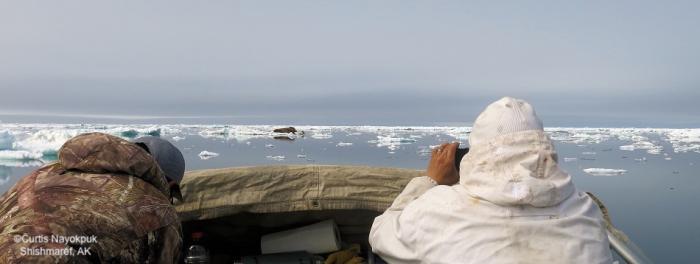
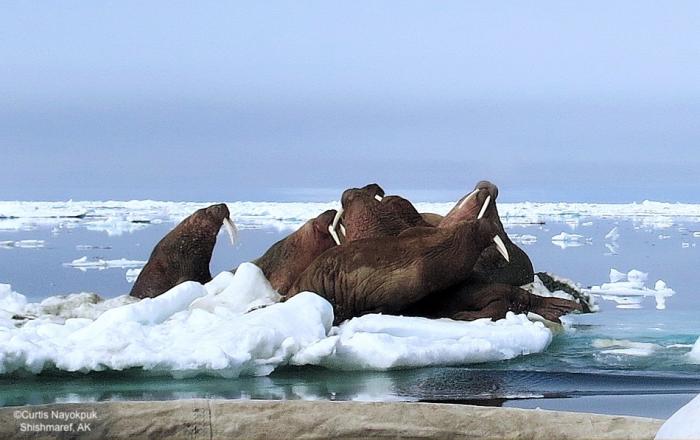
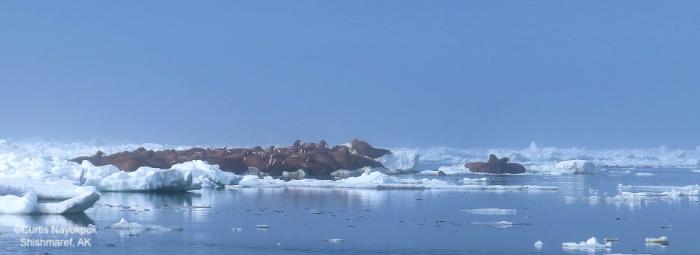
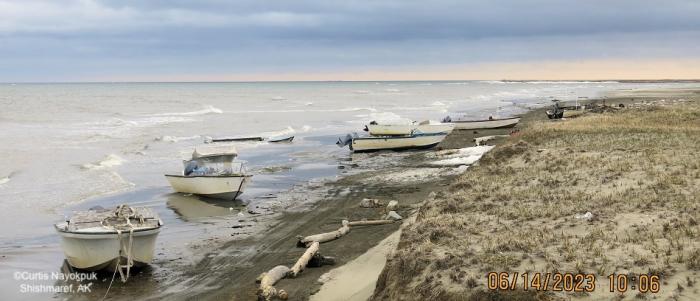
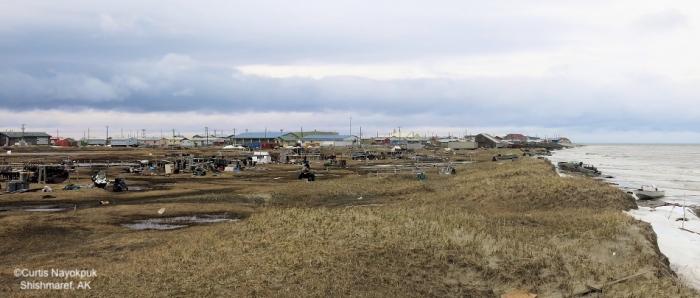
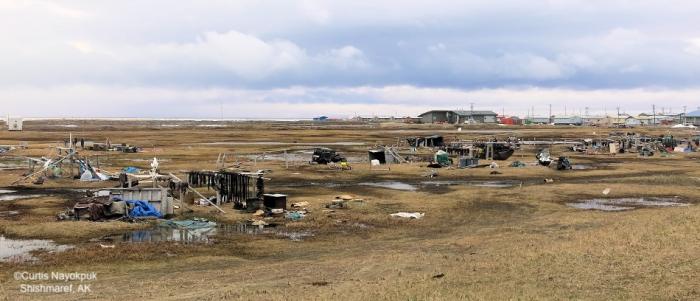
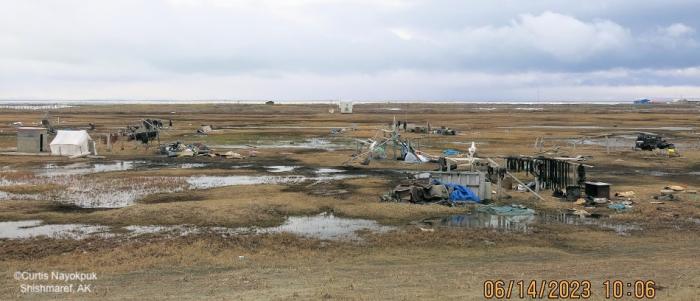
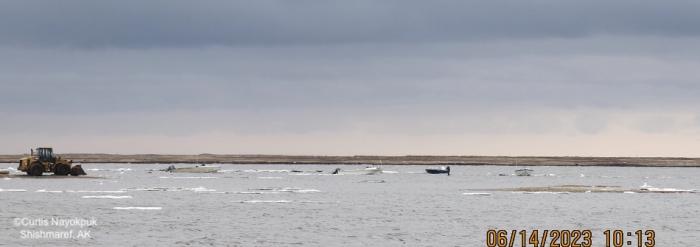
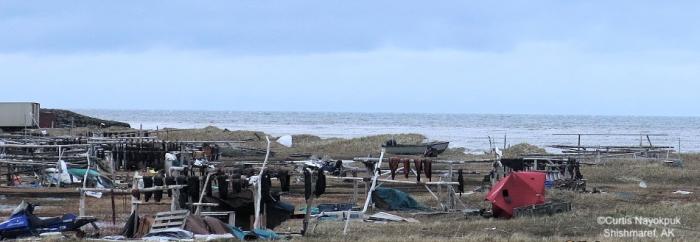
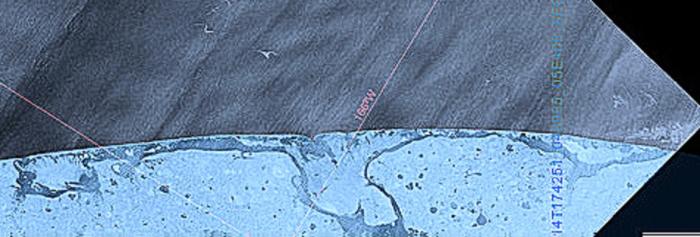
Observations from Port Clarence, Brevig Mission, and Cape Douglas
Friday, 16 June 2023 – Marcus Barr
Shorefast ice finally started to go out this morning. No boats had gone out and will probably be heading out today. No seal or walrus hasn't been harvested yet besides a month ago from one boat.
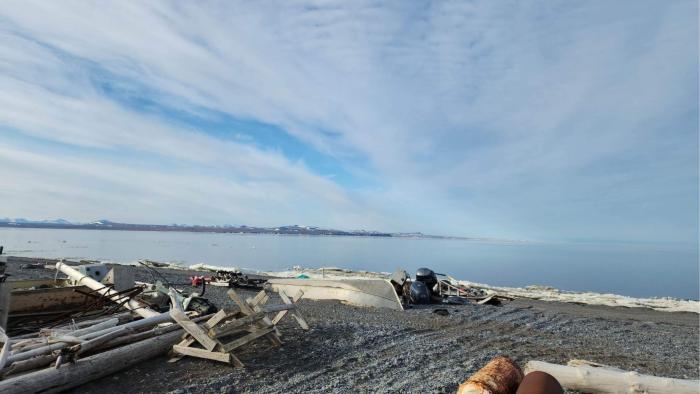
Additional Comments Provided by Local Experts and Other Contributors
Shared by the Alaska Ocean Observing System (AOOS) for 14–22 June 2023
Visit the (SIWO Facebook page @seaiceforwalrus)[https://www.facebook.com/seaiceforwalrus] to view this animation showing the predicted movement of ice predicted by the HYbrid Coordinate Ocean Model (HYCOM). Snapshots from the forecast show ice coverage from 0% (black) to 100% (white) and arrows show the relative speed and direction of the ice. A light boundary is drawn at 15% predicted ice cover to highlight the ice edge, but ice may be predicted to extend beyond it. Some bays, lagoons, and areas very close to shore are not covered by the model. (Image produced by the Alaska Ocean Observing System / Axiom Data Science).

